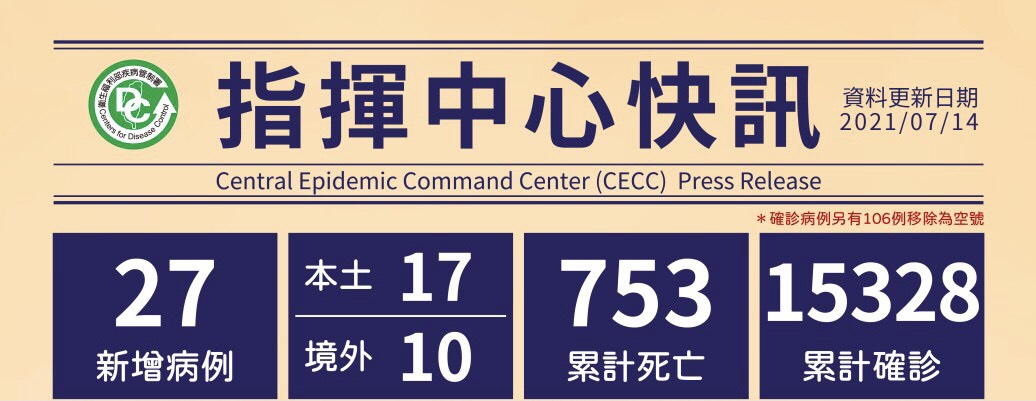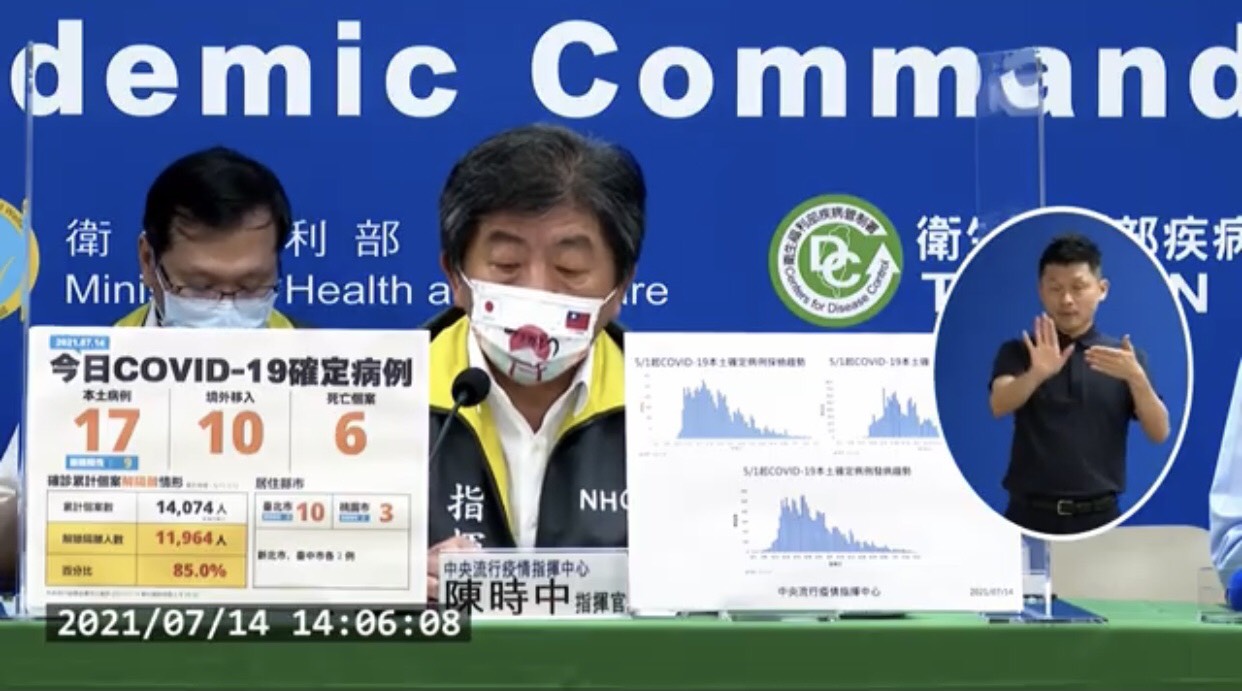On July 14, the Central Epidemic Command Center (CECC) announced 27 new confirmed cases of coronavirus disease 2019 (COVID-19) in Taiwan. Of the 27 new cases, 17 are domestic and the other 10 are imported. The CECC also announced six deaths today.

27 new cases were confirmed on July 14 (17 local, 10 imported from Myanmar, the United Kingdom, Japan, Indonesia, and Mauritania). (Photo / Provided by the CDC)
The CECC pointed out that of the 17 domestic cases, 11 are men and the other six are women, aged between 10 to 89 years old. Taipei City reported the most cases, at 10, and Taoyuan City had the second-highest number, at 3. New Taipei City and Taichung City reported 2 cases each.
Read more: Rappler Talk Entertainment: The Itchyworms on marking 25 years in OPM
Regarding the six deaths announced today, they were five men and one woman between 50 and 89 years old.
Regarding the 10 imported cases, they were 9 men and one woman between 10 and 79 years old. They arrived in Taiwan from Myanmar (six passengers on the same flight), the UK, Japan, Indonesia, and Mauritania, respectively, and arrived in the country between June 30 and July 11.
Read more: Marvel's 'Black Widow' debuts with dazzling $80 million in theaters
The CECC reported that a total of 1,686,311 cases related to COVID-19 have been reported in Taiwan among which COVID-19 has been ruled out in 1,669,801. Of the 15,328 confirmed cases, 1,214 are imported; 14,061 are domestic. There have been a cumulative total of 753 COVID-19 deaths since 2020; of the 753 deaths, 745 are from domestic cases and the other 8 are from imported cases.
The CECC reminds the public to pay attention to personal hygiene, to reducing unnecessary outings, and to avoid crowded areas especially high-risk areas. Cooperating and following these epidemic prevention guidelines will keep everyone safe.







